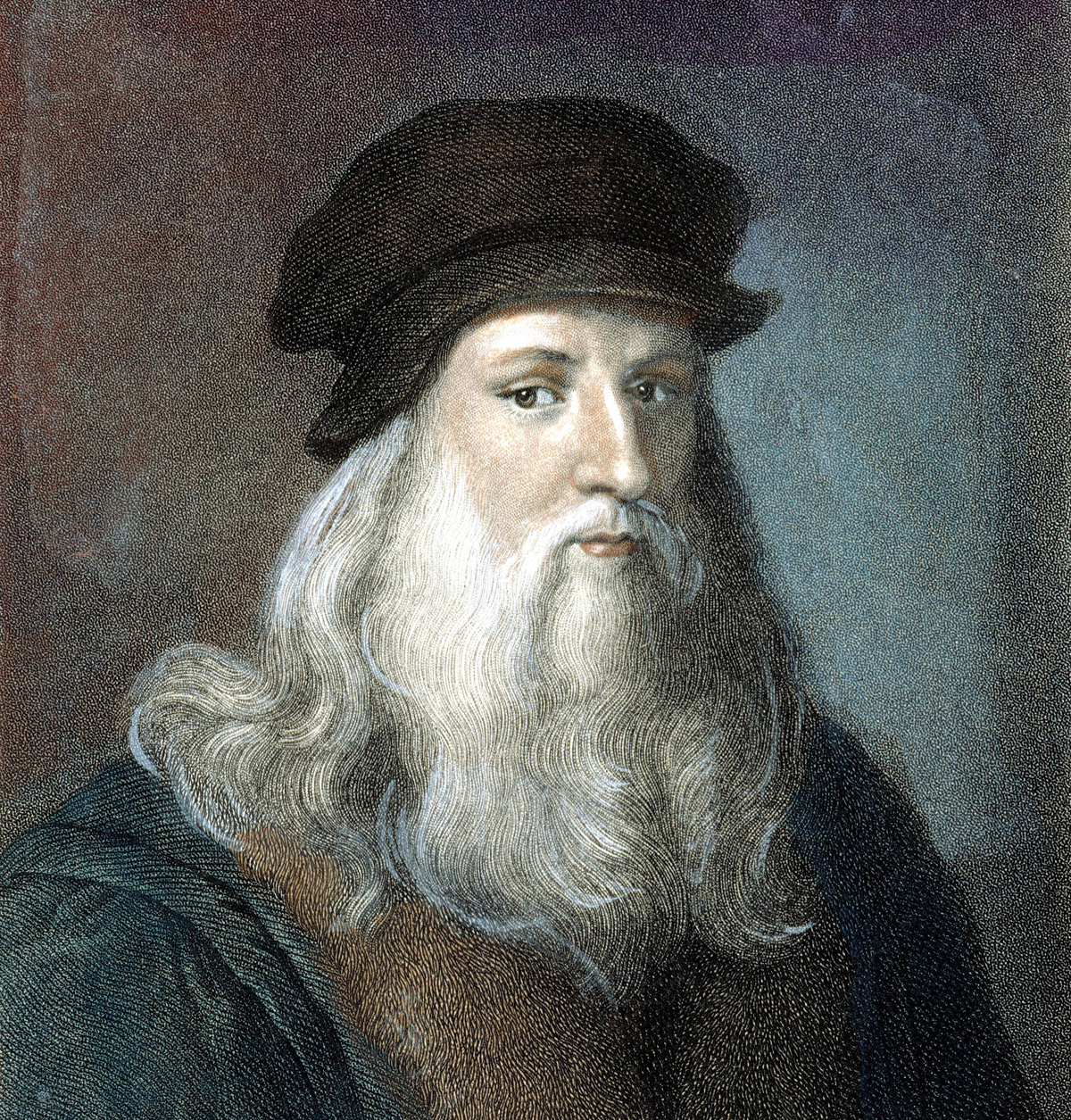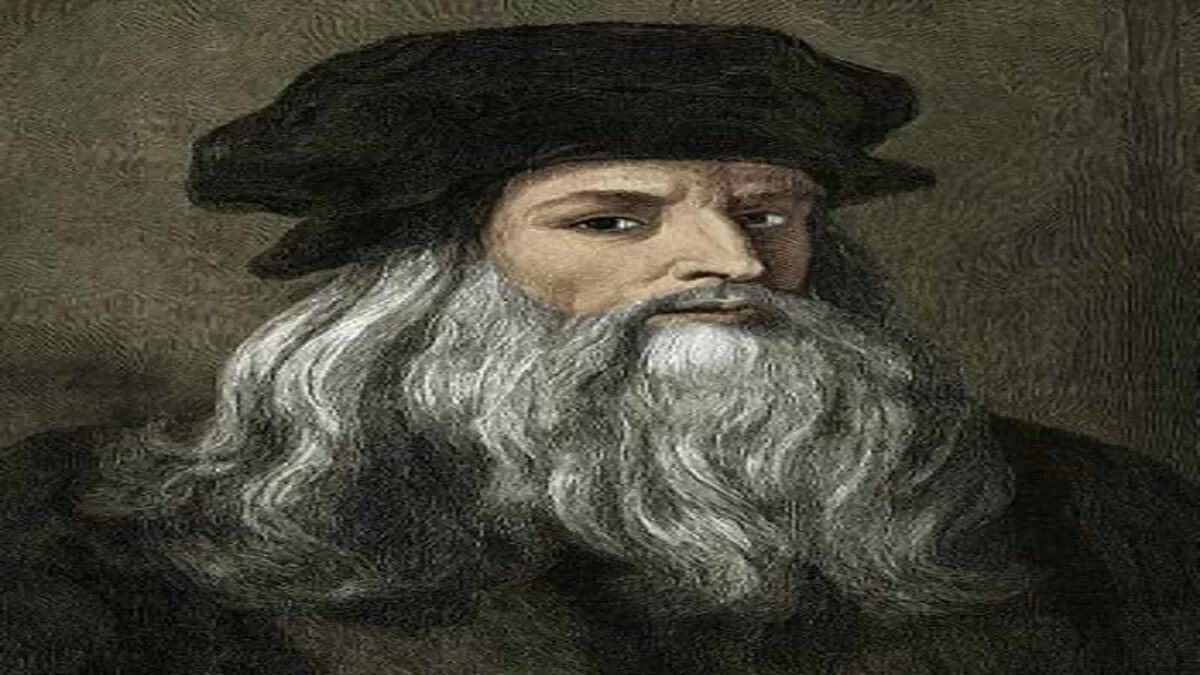Leo's Evolution: The 'Growing Pains' Of A Hollywood Icon
From the moment he burst onto the scene, a fresh-faced prodigy with undeniable talent, Leonardo DiCaprio was destined for stardom. Yet, his journey wasn't merely a linear ascent to fame; it was a complex evolution marked by deliberate choices, artistic risks, and a profound maturation process that many in the public eye struggle to navigate. This transformative period, often characterized as the Leonardo DiCaprio growing pains age, saw him shed the label of teen heartthrob to emerge as one of the most respected and influential actors of his generation. It's a testament to his dedication that he not only survived the intense scrutiny of early fame but leveraged it to forge a career of unparalleled depth and impact.
While the name 'Leonardo' might immediately evoke images of Renaissance genius like Leonardo da Vinci, the polymath whose masterpieces revolutionized art and science, or perhaps even cutting-edge AI technology from Leonardo.ai, which enables seamless blending and enhancement of images and powers advanced aerospace, security, and defense solutions through its skilled workforce, our focus today is squarely on the evolving journey of another luminary: Leonardo DiCaprio. His career trajectory offers a fascinating case study in artistic growth, resilience, and the strategic navigation of a demanding industry. This article delves into the critical phases of his career, examining how he embraced the challenges of his "growing pains age" to sculpt a legacy that transcends mere celebrity.
Table of Contents
- From Teen Idol to Acclaimed Artist: The Early Years
- Navigating the "Growing Pains Age": DiCaprio's Pivotal Transformations
- The Scorsese Partnership: A Masterclass in Reinvention
- Beyond the Box Office: Activism and Personal Growth
- The Quest for the Oscar: A Decades-Long Journey
- The Triumph: The Revenant and Beyond
- The Enduring Legacy: What "Growing Pains" Taught Us
- Personal Data: A Glimpse into the Man
From Teen Idol to Acclaimed Artist: The Early Years
Leonardo DiCaprio's initial foray into the acting world was marked by a series of roles that quickly established him as a prodigious talent. From his early appearances in television shows like "Growing Pains" (ironically, a title that resonates with our theme) to his breakout film roles, it was clear he possessed a unique charisma and an innate ability to convey complex emotions. His performance as a mentally challenged boy in "What's Eating Gilbert Grape" (1993) earned him his first Academy Award nomination at the tender age of 19, signaling to the industry that he was far more than just a pretty face. This early recognition, while validating, also set the stage for the challenges that would define his Leonardo DiCaprio growing pains age.
- What Happened To Farrah Fawcett
- Keely Shaye Smith Model Photos
- Imogenlucie Nude
- Luke And Laura On General Hospital
- Justin Boone
The Heartthrob Era: Defining a Generation
The mid-to-late 1990s cemented DiCaprio's status as a global phenomenon. Baz Luhrmann's "Romeo + Juliet" (1996) reimagined Shakespeare for a new generation, with DiCaprio's passionate portrayal of Romeo captivating audiences worldwide. However, it was James Cameron's "Titanic" (1997) that truly propelled him into the stratosphere of superstardom. As Jack Dawson, the charming and ill-fated artist, DiCaprio became the quintessential romantic lead, his face plastered on bedroom walls and magazine covers across the globe. "Titanic" wasn't just a film; it was a cultural event, and DiCaprio was at its epicenter. This period, while exhilarating, presented a significant challenge: how does an actor, particularly one so young, transition from being a universally adored teen idol to a respected dramatic performer? This question would largely define his Leonardo DiCaprio growing pains age.
The immense success of "Titanic" brought with it an unprecedented level of fame and the risk of being typecast. Many young actors who achieve such massive popularity early in their careers find themselves trapped, unable to shake off the image that made them famous. For DiCaprio, this was a critical juncture. He had to make deliberate choices to prove his versatility and commitment to the craft, rather than simply capitalizing on his heartthrob status. The pressure to maintain commercial appeal while simultaneously seeking artistic integrity was immense, and his subsequent choices would reveal his strategy for navigating these treacherous waters.
Shifting Gears: The First Signs of Maturity
Following "Titanic," DiCaprio consciously sought out roles that challenged him and allowed him to explore darker, more complex characters. This marked the beginning of his strategic navigation through his "growing pains age." Films like "The Man in the Iron Mask" (1998), where he played dual roles, and particularly "The Beach" (2000), a psychological drama that saw him portray a disillusioned backpacker, were early indicators of his desire to break free from the romantic lead archetype. While "The Beach" received mixed reviews, it was a clear signal of his intent to diversify his portfolio and work with acclaimed directors, even if the commercial success wasn't on par with "Titanic."
These choices, though not always universally lauded by critics or embraced by the same mass audience that adored him in "Titanic," were crucial steps in his artistic development. They demonstrated a willingness to experiment and take risks, a hallmark of an actor committed to growth rather than complacency. It was during this period that he began to lay the groundwork for the more mature, critically acclaimed performances that would define the next phase of his career, moving beyond the superficiality of teen idol status towards the gravitas of a serious artist.
Navigating the "Growing Pains Age": DiCaprio's Pivotal Transformations
The early 2000s represented a defining chapter in the Leonardo DiCaprio growing pains age. This was the period where he actively and consistently sought out challenging, often darker, roles that allowed him to delve deep into the human psyche. He understood that to be taken seriously as a dramatic actor, he needed to align himself with visionary filmmakers and compelling narratives that demanded more than just his charm. This strategic shift was not without its difficulties; it required rejecting lucrative offers that might have kept him in his comfort zone and embracing roles that pushed him to his limits, both emotionally and physically.
His collaboration with legendary director Martin Scorsese became the cornerstone of this transformative era. This partnership, which began with "Gangs of New York" (2002), was pivotal. Scorsese, known for his intense character studies and gritty realism, provided DiCaprio with the perfect canvas to showcase his burgeoning dramatic range. It was a clear statement to Hollywood and the world that DiCaprio was no longer just a heartthrob; he was a serious actor dedicated to the craft. This period was characterized by a visible maturing of his acting style, moving from raw talent to refined artistry, demonstrating a profound understanding of character and narrative.
The Scorsese Partnership: A Masterclass in Reinvention
The collaboration between Leonardo DiCaprio and Martin Scorsese is one of the most significant actor-director pairings in modern cinema, reminiscent of the classic duos of Hollywood's golden age. Beginning with "Gangs of New York" (2002), this partnership provided DiCaprio with the mentorship and challenging roles necessary to fully realize his potential and solidify his transition through the Leonardo DiCaprio growing pains age. In "Gangs of New York," he portrayed Amsterdam Vallon, a young man seeking revenge in a brutal 19th-century New York. The film was epic in scope, and DiCaprio held his own against Daniel Day-Lewis's formidable performance, proving his mettle in a gritty, historical drama.
Their next collaboration, "The Aviator" (2004), saw DiCaprio take on the complex role of Howard Hughes, earning him his second Academy Award nomination for Best Actor. His portrayal of the eccentric billionaire, grappling with obsessive-compulsive disorder and a relentless pursuit of innovation, was a tour de force, showcasing his ability to embody a character's internal struggles with nuance and depth. This was followed by "The Departed" (2006), a critically acclaimed crime thriller that won the Best Picture Oscar. As Billy Costigan, an undercover state trooper, DiCaprio delivered a raw and intense performance, further cementing his reputation as a versatile and powerful actor.
The partnership continued to flourish with "Shutter Island" (2010), a psychological thriller that allowed DiCaprio to explore themes of madness and delusion, and "The Wolf of Wall Street" (2013), a darkly comedic portrayal of the infamous stockbroker Jordan Belfort. In "The Wolf of Wall Street," DiCaprio delivered one of his most audacious and uninhibited performances, earning him another Oscar nomination. These films, under Scorsese's masterful direction, allowed DiCaprio to shed any lingering vestiges of his teen idol image, proving his capability to carry complex narratives and deliver performances that were both critically lauded and commercially successful. The Scorsese era was undeniably the crucible in which the modern Leonardo DiCaprio was forged.
Beyond the Box Office: Activism and Personal Growth
As Leonardo DiCaprio matured as an actor, his influence began to extend far beyond the silver screen. A significant aspect of his "growing pains age" involved recognizing and leveraging his global platform for causes he deeply believed in. Since the late 1990s, DiCaprio has been a vocal and passionate advocate for environmentalism and climate change awareness. He established the Leonardo DiCaprio Foundation in 1998, dedicated to promoting environmental awareness and funding initiatives that protect biodiversity, conserve wildlands and oceans, and combat climate change.
His commitment to these causes is not merely performative. He has produced and narrated several documentaries, including "The 11th Hour" (2007) and "Before the Flood" (2016), using his celebrity to bring critical environmental issues to a wider audience. He has addressed the United Nations, met with world leaders, and consistently used his social media presence to share scientific data and advocate for policy changes. This dedication to global issues showcases a personal growth that mirrors his professional evolution. It demonstrates a profound sense of responsibility that often comes with navigating the complexities of public life and using one's influence for positive impact. His activism is a testament to the idea that true growth involves not just mastering one's craft but also understanding one's place in the world and contributing meaningfully to it. This dimension of his life has added another layer of depth and respect to his public persona, solidifying his status as a thoughtful and engaged global citizen, far removed from the superficiality often associated with early fame.
The Quest for the Oscar: A Decades-Long Journey
For many years, a pervasive narrative surrounded Leonardo DiCaprio: the exceptionally talented actor who couldn't quite clinch an Academy Award for Best Actor. Despite multiple nominations for films like "The Aviator," "Blood Diamond," and "The Wolf of Wall Street," the coveted golden statue remained elusive. This "Oscar narrative" became a significant part of the Leonardo DiCaprio growing pains age in the public consciousness, creating a unique pressure and expectation around each new performance. Fans and critics alike would speculate whether *this* would be the year he finally won, turning his nominations into a collective, almost sport-like, event.
This prolonged quest for the Oscar, while perhaps frustrating for DiCaprio himself, inadvertently added another layer to his public image. It portrayed him as a dedicated artist, consistently delivering performances worthy of the highest accolades, even if the ultimate recognition eluded him. It highlighted his resilience and his unwavering commitment to challenging roles, regardless of the outcome. Each "snub" seemed to fuel his determination to push boundaries further, to select roles that demanded more, and to work with directors who could extract the very best from him. The anticipation surrounding his eventual win built to a fever pitch, making the eventual triumph all the more impactful.
The Triumph: The Revenant and Beyond
The year 2016 finally brought the long-awaited triumph. Leonardo DiCaprio's grueling, visceral performance as Hugh Glass in Alejandro G. Iñárritu's "The Revenant" earned him the Academy Award for Best Actor. The role was physically demanding, requiring him to endure extreme conditions, battle a bear, and survive in the wilderness, often with minimal dialogue. It was a performance of immense physicality and raw emotion, a culmination of years of dedicated work and a testament to his willingness to push himself to the absolute limits of his craft. His win was met with widespread celebration, not just as a recognition of a single performance, but as an acknowledgment of a career built on artistic integrity and relentless pursuit of excellence.
The Oscar win marked a significant turning point, effectively bringing an end to the "quest" narrative and allowing DiCaprio to move into a new phase of his career, free from that specific pressure. Post-Oscar, his choices have continued to reflect his commitment to working with esteemed directors and exploring diverse genres. His role as Rick Dalton in Quentin Tarantino's "Once Upon a Time in Hollywood" (2019) showcased his comedic timing and his ability to portray a character grappling with his own professional anxieties, earning him another Oscar nomination. More recently, "Don't Look Up" (2021) saw him tackle a satirical role with a strong environmental message, reinforcing his dual commitment to compelling storytelling and global advocacy. These post-Oscar roles demonstrate that the Leonardo DiCaprio growing pains age has yielded a mature, confident actor who continues to challenge himself and entertain audiences while remaining true to his artistic and personal convictions.
The Enduring Legacy: What "Growing Pains" Taught Us
The journey through the Leonardo DiCaprio growing pains age offers invaluable lessons for anyone navigating a path of significant personal or professional evolution. His career arc is a masterclass in strategic career management, artistic integrity, and the power of perseverance. He didn't simply ride the wave of early fame; he actively steered his career, making conscious choices to challenge himself, collaborate with masters, and diversify his roles. This deliberate approach allowed him to transition from a teen idol to a universally respected actor, producer, and environmental activist.
DiCaprio's legacy is not just about his impressive filmography or his numerous accolades. It's about his ability to adapt, to learn from each experience, and to continuously strive for improvement. He understood that true artistic growth often comes from discomfort, from embracing the "pains" of pushing boundaries and stepping outside of one's comfort zone. His commitment to environmental causes further solidifies his impact, demonstrating that a public figure can be both a celebrated artist and a powerful force for positive change. He has set a benchmark for how actors can evolve, maintain relevance, and use their platform responsibly, inspiring a new generation of performers to pursue depth and purpose in their careers.
Personal Data: A Glimpse into the Man
Biography Snapshot
Leonardo Wilhelm DiCaprio was born in Los Angeles, California, to Irmelin Indenbirken and George DiCaprio. His parents separated when he was a year old, and he primarily lived with his mother. From a young age, he showed an interest in acting, appearing in commercials and educational films. His early career was marked by a steady progression through television roles before making a significant impact in film. Beyond his acting prowess, DiCaprio is widely recognized for his fervent environmental activism, a cause he has championed for decades, using his global platform to raise awareness and fund initiatives for climate change and conservation.
Key Personal & Professional Data
| Full Name | Leonardo Wilhelm DiCaprio |
| Born | November 11, 1974 (age 49) |
| Birthplace | Los Angeles, California, U.S. |
| Nationality | American |
| Occupation | Actor, Film Producer, Environmental Activist |
| Years Active | 1989–present |
| Notable Works | What's Eating Gilbert Grape (1993), Romeo + Juliet (1996), Titanic (1997), Catch Me If You Can (2002), Gangs of New York (2002), The Aviator (2004), The Departed (2006), Inception (2010), Django Unchained (2012), The Wolf of Wall Street (2013), The Revenant (2015), Once Upon a Time in Hollywood (2019), Don't Look Up (2021), Killers of the Flower Moon (2023) |
| Key Awards | Academy Award (Best Actor), Golden Globe Awards (3), BAFTA Award (1), Screen Actors Guild Award (1) |
| Net Worth (approx.) | Estimated $300 million (as of late 2023, varies by source) |
Conclusion
The narrative of Leonardo DiCaprio growing pains age is a compelling testament to the power of deliberate career choices and unwavering dedication. From a teen idol gracing magazine covers to an Oscar-winning actor and formidable environmental advocate, DiCaprio has meticulously crafted a career defined by artistic integrity and profound impact. His journey illustrates that true growth often requires stepping out of one's comfort zone, embracing challenges, and continuously striving for mastery, both in one's craft and in one's contribution to the world.
His story serves as an inspiration, demonstrating that with strategic vision and a commitment to excellence, it is possible to not only survive the pressures of early fame but to thrive and evolve into a multi-faceted, influential figure. Leonardo DiCaprio's enduring legacy is a powerful reminder that the "growing pains" of transformation can ultimately lead to unparalleled success and a lasting positive influence. What are your favorite Leonardo DiCaprio performances, and which phase of his career do you find most compelling? Share your thoughts in the comments below, or explore more articles on the transformative journeys of Hollywood's greatest talents on our site!
- Vanna Whites Income
- Cast Of The Adams Family
- Does Cheryl Hines Have Any Children
- Dj Tanner
- Joanna Gaines Net Worth 2024

Leonardo Da Vinci, el hombre detrás del genio

List of Famous Leonardo Da Vinci Paintings and Artworks

8 Things You Probably Didn't Know About Leonardo da Vinci